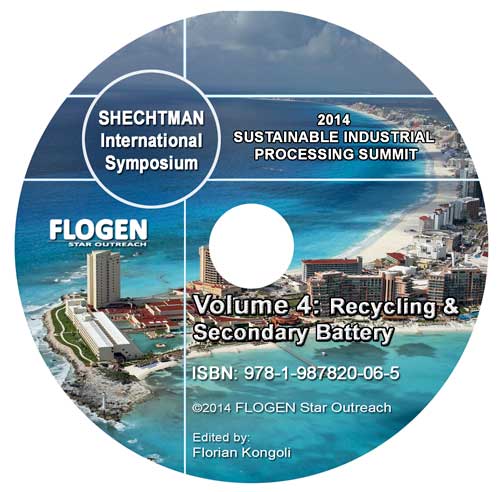2014-Sustainable Industrial Processing Summit
SIPS 2014 Volume 5: Composite, Ceramic, Quasi-crystals, Nanomaterials & Coatings
| Editors: | Kongoli F |
| Publisher: | Flogen Star OUTREACH |
| Publication date: | 20 December 2014 |
| Pages: | 578 pages |
| ISBN: | 978-1-987820-07-2 |
| ISSN: | 2291-1227 (Metals and Materials Processing in a Clean Environment Series) |

CD shopping page
Synthesis, characterization and properties of radiation-induced Gum ghatti-poly(acrylic acid-aniline) hydrogels
Kashma Sharma1;1SHOOLINI UNIVERSITY OF BIOTECHNOLOGY AND MANAGEMENT SCIENCES, SOLAN, HIMACHAL PRADESH, Solan, India;
Type of Paper: Regular
Id Paper: 265
Topic: 14
Abstract:
Interpenetrating network (IPN) Gg-cl-poly(acrylic acid-aniline) hydrogels were synthesized by a two-steps aqueous polymerization method using gamma-radiation-initiation. The first step involves the grafting of acrylic acid (AA) onto gum ghatti using N, Na-methylene-bis-acrylamide (MBA) as a cross linker. The effects of grafting parameters on the degree of grafting and percentage swelling were investigated, respectively. The grafting parameters include monomer and cross linker concentration, gamma dose and the amount of solvent. The degree of grafting and percentage swelling were found to be greatly dependent on the reaction parameters. In the second step, aniline monomer was absorbed in the network of Gg-cl-poly(AA) and followed by a polymerization reaction between aniline monomer. The copolymers were characterized using UV/vis spectroscopy, X-ray diffraction and thermogravimetric analysis. The biodegradation of cross-linked hydrogels were carried out by using soil burial test for a period of 60 days. The degree of degradation was analysed by weight loss measurement, FTIR and SEM techniques. Our results showed that Gg-cl-poly(AA) degraded at a rate of ~6.1% after 6 days, whereas the degradation rate for Gg-cl-poly(AA-IPN-aniline) was ~10% in soil burial test. Application of hydrogels to improve the water retention properties of different soils was studied for agricultural purposes and found that the IPN hydrogel can improve the moisture retention capacity of soil for cultivation.